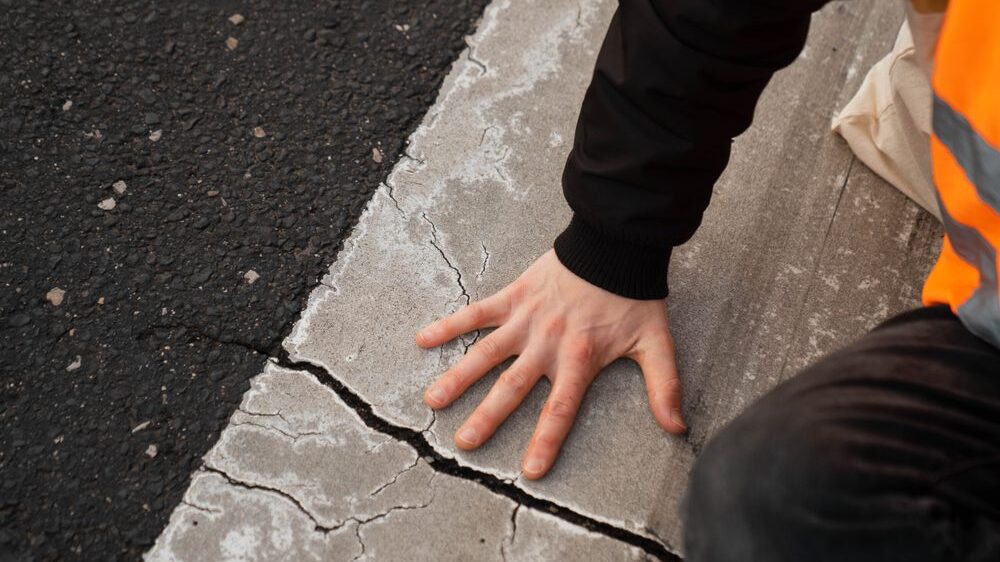
‘Letzte Generation’—or ‘the Last Generation’—Germany’s leading extremist climate alarmist group, will not be classified as a criminal organisation despite having engaged in as many as 580 criminal offences since 2022.
On Wednesday, July 19th, the Berlin Senate Justice Department announced the result of its reviews into the activity of the group and stated that it did not believe it was needed to classify Last Generation as a criminal organisation, according to a report in Die Welt.
Germany has recently been cracking down on the antics of certain extremist climate groups whose members engage in disruptive protests, such as glueing themselves to roads and, more recently, glueing themselves to runways in airports in the cities of Düsseldorf and Hamburg, causing major air traffic disruptions.
The Last Generation has been the subject of a crackdown by German authorities that raided homes belonging to activists connected to the group earlier this year.
Justice Senator Felor Badenberg had called for the review of Last Generation back in May, the same month of the raids against Last Generation in several German states, including Berlin.
The Neuruppin public prosecutor’s office in the state of Brandenburg, which surrounds the German capital, has taken a far different approach to the Last Generation and was behind raids on members in various parts of the country, including Bavaria, Hesse, Lower Saxony, Baden-Württemberg, Mecklenburg-Western Pomerania, and Brandenburg in December of last year.
The raids were linked to investigations into the alleged attempted sabotage of an oil pipeline in Schwedt, with Senior Public Prosecutor Cyrill Klement saying those raided were under investigation for forming a criminal organisation under Section 129 of the German Criminal Code.
Last year, Last Generation activists repeatedly tried to stop the flow of oil to the PCK Schwedt refinery by interrupting pumping stations in both Brandenburg and Western Pomerania. According to Die Welt, the refinery employs 1,200 people and is the most important refinery for East German petrol stations.
Aimée van Baalen, the spokeswoman for the Last Generation, criticised last December’s raids saying, “All because the federal government is breaking our Basic Law and is still not complying with the Paris Agreement and these people are taking to the streets because of it.”
“A prerequisite for the democratic process is the ability to assemble freely and publicly, to unite as a group and also to resist. If this principle is criminalised, it threatens the foundations of democracy,” the group said in a press release.
Last Generation attempted to file a complaint in the district court of Potsdam against the classification of forming a criminal organisation but the court rejected their complaint.
In Berlin, however, Justice Senator Felor Badenberg argued that the move by the prosecutor in Brandenburg “can only be applied to the situation in Berlin to a limited extent,” but noted that the group may be investigated in the future depending on the development of their protests.
Between 2022 and June of this year, Last Generation allegedly carried out as many as 580 crimes according to statistics from the German Federal Interior Ministry.
“The Federal Criminal Police Office has created a nationwide situation report for the first time. 580 crimes are attributable to the Last Generation since the beginning of 2022, while 740 people have come to the attention of police. It is mainly about coercion and damage to property,” German Interior Minister Nancy Faeser said.
Hans-Georg Maassen, the former head of Germany’s domestic spy agency, the Federal Office for the Protection of the Constitution (BfV), has called on authorities to treat Last Generation as a threat to German democracy, arguing that the group should be classified as a criminal organisation.
According to Maassen, the members of Last Generation “want a different state in which climate protection has absolute priority and democracy or the rule of law are no longer important. That must be prevented.”
